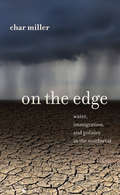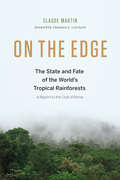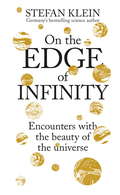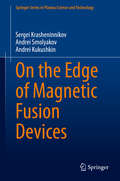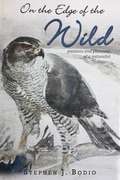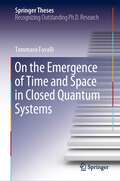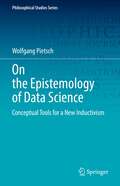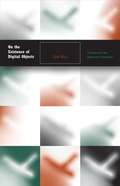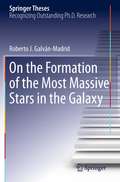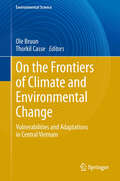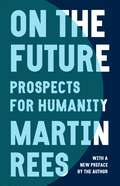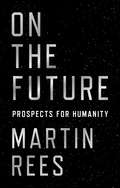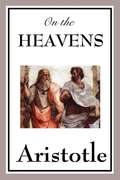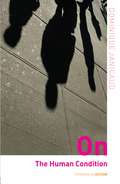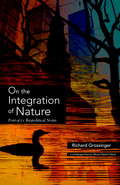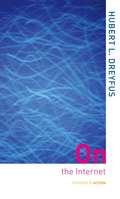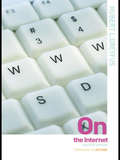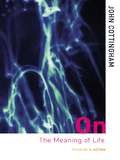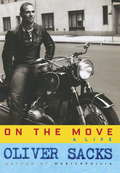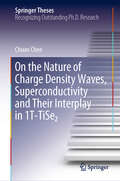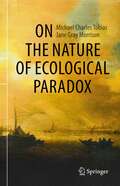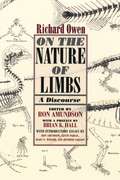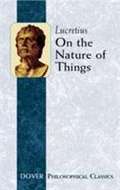- Table View
- List View
On the Edge
by Char MillerOn the Edge grew out of a lifetime spent living and traveling across the American Southwest, from San Antonio to Los Angeles. Char Miller examines this borderland region through a native's eyes and contemplates its considerable conflicts. Internal to the various US states and Mexico's northern tier, there are struggles over water, debates over undocumented immigrants, the criminalizing of the border, and the region's evolution into a no-man's land.The book investigates how we live on this contested land --how we make our place in its oft-arid terrain; an ecosystem that burns easily and floods often and defies our efforts to nestle in its foothills, canyons, and washes.Exploring the challenges in the Southwest of learning how to live within this complex natural system while grasping its historical and environmental frameworks. Understanding these framing devices is critical to reaching the political accommodations necessary to build a more generous society, a more habitable landscape, and a more just community, whatever our documented status or species.
On the Edge
by Char MillerOn the Edge grew out of a lifetime spent living and traveling across the American Southwest, from San Antonio to Los Angeles. Char Miller examines this borderland region through a native's eyes and contemplates its considerable conflicts. Internal to the various US states and Mexico's northern tier, there are struggles over water, debates over undocumented immigrants, the criminalizing of the border, and the region's evolution into a no-man's land.The book investigates how we live on this contested land --how we make our place in its oft-arid terrain; an ecosystem that burns easily and floods often and defies our efforts to nestle in its foothills, canyons, and washes.Exploring the challenges in the Southwest of learning how to live within this complex natural system while grasping its historical and environmental frameworks. Understanding these framing devices is critical to reaching the political accommodations necessary to build a more generous society, a more habitable landscape, and a more just community, whatever our documented status or species.
On the Edge
by Thomas E. Lovejoy Claude MartinIn 1972, The Limits to Growth introduced the idea that world resources are limited. Soon after, people became aware of the threats to the world's rainforests, the biggest terrestrial repositories of biodiversity and essential regulators of global air and water cycles. Since that time, new research and technological advances have greatly increased our knowledge of how rainforests are being affected by changing patterns of resource use. Increasing concern about climate change has made it more important than ever to understand the state of the world's tropical forests.This book provides an up-to-date picture of the health of the world's tropical forests. Claude Martin, an eminent scientist and conservationist, integrates information from remote imaging, ecology, and economics to explain deforestation and forest health throughout the world. He explains how urbanization, an increasingly global economy, and a worldwide demand for biofuels put new pressure on rainforest land. He examines the policies and market forces that have successfully preserved forests in some areas and discusses the economic benefits of protected areas. Using evidence from ice core records and past forest cover patterns, he predicts the most likely effects of climate change.Claude Martin brings his wealth of experience as an ecologist, director of the WWF, and advistor to various conservation organizations to bear on the latest research from around the world. Contributions from eight leading experts provide additional insight.
On the Edge of Infinity: Encounters with the Beauty of the Universe
by Stefan KleinFrom the award-winning, bestselling German science author Stefan Klein An original way into the most thought-provoking scientific theories and ideas, On The Edge of Infinity is the perfect read for those curious about the workings of the universe.*How can a hurricane can reveal the world's unpredictability?How can a greying beard might demonstrate the irreversibility of time?How do the exploits of burglars in New York and London demonstrate how everything can be in two places at once?Employing stories about simple everyday items or occurrences as analogies to illuminate counterintuitive realities behind the visible world, On The Edge of Infinity reveals the astonishing beauty of the universe. This book transforms a simple everyday thing such as a rose blossom, or a day of stormy weather, into a key to understanding the most complex ideas and theories in 21st century physics. Stefan Klein unpicks the complexities and intricacies of physics, from the answered questions to the dark corners of what we have yet to discover, making this an accessible read to those with no previous knowledge of the subject.
On the Edge of Magnetic Fusion Devices (Springer Series in Plasma Science and Technology)
by Sergei Krasheninnikov Andrei Smolyakov Andrei KukushkinThis book reviews the current state of understanding concerning edge plasma, which bridges hot fusion plasma, with a temperature of roughly one million degrees Kelvin with plasma-facing materials, which have melting points of only a few thousand degrees Kelvin. In a fact, edge plasma is one of the keys to solution for harnessing fusion energy in magnetic fusion devices.The physics governing the processes at work in the edge plasma involves classical and anomalous transport of multispecies plasma, neutral gas dynamics, atomic physics effects, radiation transport, plasma-material interactions, and even the transport of plasma species within the plasma-facing materials.The book starts with simple physical models, then moves on to rigorous theoretical considerations and state-of-the-art simulation tools that are capable of capturing the most important features of the edge plasma phenomena. The authors compare the conclusions arising from the theoretical and computational analysis with the available experimental data. They also discuss the remaining gaps in their models and make projections for phenomena related to edge plasma in magnetic fusion reactors.
On the Edge of the Wild: Passions and Pleasures of a Naturalist (Lyons Press Series)
by Stephen Bodio Paula Young Lee"This book is a collage in essays about the kind of life I found worth living so far," writes author Stephen J. Bodio. On the Edge of the Wild is a stunning collection that shares Bodio's love for the country, wilderness, literature, and much more. With compelling stories about moving to Montana, treasured shotguns, and his absolute love of cooking, readers will be hooked by the beautiful way in which Bodio shares his feelings about life and the outdoors.The thought-provoking essays in On the Edge of the Wild will appeal to those who enjoy living off the land as well as those who appreciate the detail and way that Bodio paints a picture of his travels. The incredible array of stories shows the deep appreciation and respect that he has for nature, including the wonderful animals that grace his presence. From dogs to falcons, the love shared by this naturalist will be something that readers treasure and hope to one day be able to share through experiences similar to the ones Bodio has lived.
On the Emergence of Time and Space in Closed Quantum Systems (Springer Theses)
by Tommaso FavalliTime, space and entanglement are the main characters in this book. Their nature is still a great mystery in physics and we study here the possibility that these three phenomena are closely connected, showing how entanglement can be at the basis of the emergence of time and space within closed quantum systems. We revisit and extend the Page and Wootters theory that was originally introduced in order to describe the emergence of time through entanglement between subsystems in a globally static, quantum Universe. In the book, after providing a complete review of the salient aspects of the theory, we establish a connection with recent research on the foundations of statistical mechanics and we provide a new understanding of the thermalization process. Furthermore, we generalize the framework in order describe the spatial degree of freedom and we provide a model of 3+1 dimensional, quantum spacetime emerging from entanglement among different subsystems in a globally "timeless" and "positionless" Universe. Finally, via the Page and Wootters theory, the evolution of quantum clocks within a gravitational field is treated and a time dilation effect is obtained in agreement with the Schwarzschild solution.
On the Epistemology of Data Science: Conceptual Tools for a New Inductivism (Philosophical Studies Series #148)
by Wolfgang PietschThis book addresses controversies concerning the epistemological foundations of data science: Is it a genuine science? Or is data science merely some inferior practice that can at best contribute to the scientific enterprise, but cannot stand on its own? The author proposes a coherent conceptual framework with which these questions can be rigorously addressed. Readers will discover a defense of inductivism and consideration of the arguments against it: an epistemology of data science more or less by definition has to be inductivist, given that data science starts with the data. As an alternative to enumerative approaches, the author endorses Federica Russo’s recent call for a variational rationale in inductive methodology. Chapters then address some of the key concepts of an inductivist methodology including causation, probability and analogy, before outlining an inductivist framework. The inductivist framework is shown to be adequate and useful for an analysis of the epistemological foundations of data science. The author points out that many aspects of the variational rationale are present in algorithms commonly used in data science. Introductions to algorithms and brief case studies of successful data science such as machine translation are included. Data science is located with reference to several crucial distinctions regarding different kinds of scientific practices, including between exploratory and theory-driven experimentation, and between phenomenological and theoretical science. Computer scientists, philosophers and data scientists of various disciplines will find this philosophical perspective and conceptual framework of great interest, especially as a starting point for further in-depth analysis of algorithms used in data science.
On the Existence of Digital Objects (Electronic Mediations #48)
by Yuk HuiDigital objects, in their simplest form, are data. They are also a new kind of industrial object that pervades every aspect of our life today—as online videos, images, text files, e-mails, blog posts, Facebook events.Yet, despite their ubiquity, the nature of digital objects remains unclear.On the Existence of Digital Objects conducts a philosophical examination of digital objects and their organizing schema by creating a dialogue between Martin Heidegger and Gilbert Simondon, which Yuk Hui contextualizes within the history of computing. How can digital objects be understood according to individualization and individuation? Hui pursues this question through the history of ontology and the study of markup languages and Web ontologies; he investigates the existential structure of digital objects within their systems and milieux. With this relational approach toward digital objects and technical systems, the book addresses alienation, described by Simondon as the consequence of mistakenly viewing technics in opposition to culture.Interdisciplinary in philosophical and technical insights, with close readings of Husserl, Heidegger, and Simondon as well as the history of computing and the Web, Hui&’s work develops an original, productive way of thinking about the data and metadata that increasingly define our world.
On the Formation of the Most Massive Stars in the Galaxy
by Roberto J. Galván-MadridThe most massive stars in the galaxy - those with more than 15 to 20 solar masses - are lilkely to ionize their surroundings before they reach their final mass. How can they accrete in spite of the presence of over-pressurized gas? This thesis presents results of Submillimeter Array (SMA) and Very Large Array (VLA) studies of massive star formation regions in the early stages of ionization, as well as an analysis of numerical simulations of the evolution of these young HII regions. The results favor a picture in which very massive stars form in accretion flows that are partially ionized and that keep accreting material from their environment.
On the Frontiers of Climate and Environmental Change
by Ole Bruun Thorkil CasseThis book is intended to fill a gap in climate-change literature by providing a comprehensive regional study and identifying the overall adaptation challenges in a real-life context. The way in which possible climate impacts interact with a range of other challenges in agriculture, forestry, disaster planning, health care, general economic development, and common livelihoods are presented, and it is argued that greater realism and broader vision are needed in order to address the climate challenge. For instance, unsuitable land- use changes in both coastal and highland regions may increase the vulnerability of rural people, many of whom are already living on the fringes. The author(s) also state(s) that, depending on context, it may be pertinent to address short-term and unsustainable resource use, irregularities in local land management, ineffective governance and social inequality, which are all likely to aggravate the impact of external climate and weather. Not least, it is imperative to integrate general environmental management with any climate-change adaptation effort.
On the Future: Prospects for Humanity
by Lord Martin ReesA provocative and inspiring look at the future of humanity and science from world-renowned scientist and bestselling author Martin ReesHumanity has reached a critical moment. Our world is unsettled and rapidly changing, and we face existential risks over the next century. Various outcomes—good and bad—are possible. Yet our approach to the future is characterized by short-term thinking, polarizing debates, alarmist rhetoric, and pessimism. In this short, exhilarating book, renowned scientist and bestselling author Martin Rees argues that humanity’s prospects depend on our taking a very different approach to planning for tomorrow.The future of humanity is bound to the future of science and hinges on how successfully we harness technological advances to address our challenges. If we are to use science to solve our problems while avoiding its dystopian risks, we must think rationally, globally, collectively, and optimistically about the long term. Advances in biotechnology, cybertechnology, robotics, and artificial intelligence—if pursued and applied wisely—could empower us to boost the developing and developed world and overcome the threats humanity faces on Earth, from climate change to nuclear war. At the same time, further advances in space science will allow humans to explore the solar system and beyond with robots and AI. But there is no “Plan B” for Earth—no viable alternative within reach if we do not care for our home planet.Rich with fascinating insights into cutting-edge science and technology, this accessible book will captivate anyone who wants to understand the critical issues that will define the future of humanity on Earth and beyond.
On the Future: Prospects for Humanity
by Martin ReesA provocative and inspiring look at the future of humanity and science from world-renowned scientist and bestselling author Martin ReesHumanity has reached a critical moment. Our world is unsettled and rapidly changing, and we face existential risks over the next century. Various outcomes—good and bad—are possible. Yet our approach to the future is characterized by short-term thinking, polarizing debates, alarmist rhetoric, and pessimism. In this short, exhilarating book, renowned scientist and bestselling author Martin Rees argues that humanity’s prospects depend on our taking a very different approach to planning for tomorrow.The future of humanity is bound to the future of science and hinges on how successfully we harness technological advances to address our challenges. If we are to use science to solve our problems while avoiding its dystopian risks, we must think rationally, globally, collectively, and optimistically about the long term. Advances in biotechnology, cybertechnology, robotics, and artificial intelligence—if pursued and applied wisely—could empower us to boost the developing and developed world and overcome the threats humanity faces on Earth, from climate change to nuclear war. At the same time, further advances in space science will allow humans to explore the solar system and beyond with robots and AI. But there is no “Plan B” for Earth—no viable alternative within reach if we do not care for our home planet.Rich with fascinating insights into cutting-edge science and technology, this accessible book will captivate anyone who wants to understand the critical issues that will define the future of humanity on Earth and beyond.
On the Heavens
by AristotleTHE science which has to do with nature clearly concerns itself for the most part with bodies and magnitudes and their properties and movements, but also with the principles of this sort of substance, as many as they may be. For of things constituted by nature, some are bodies and magnitudes, some possess body and magnitude, and some are principles of things which possess these. Now a continuum is that which is divisible into parts always capable of subdivision, and a body is that which is every way divisible.
On the Human Condition (Thinking in Action)
by Dominique JanicaudThe potential to clone, augment, and repair human beings is pushing the very concept of the human to its limit. Fantasies and metaphors of a supposedly monstrous and inhuman future increasingly dominate films, art and popular culture. On the Human Condition is an invigorating and fascinating exploration of where the idea of the human stands today. Given the damage human beings have inflicted on each other and their environment throughout history, should we embrace humanism or try and overcome it?Dominique Janicaud explores these urgent questions and more. He argues that whilst we need to avoid apocalyptic talk of a post human condition, as embodied in technology such as cloning, we should neither fall back on a conservative humanism nor become technophobic. Drawing on illuminating examples such as genetic engineering, the novel Frankenstein, the legendary debate between Sartre and Heidegger over humanism, and the work of Primo Levi, Domnique Janicaud also explores the role of fantasy in understanding the human condition and asks where the line lies between the human, inhuman and the superhuman.
On the Integration of Nature
by Richard GrossingerThis collage-like book is an inquiry into the nature of life and of existence itself. Simultaneously philosophical, spiritual, and literary, it pushes the boundaries of this area of thought beyond the strictures of science, religion, and all other forms of ideology. Author Richard Grossinger dazzlingly blends narrative memoir, short science fiction "novels" (the shortest being a mere paragraph), political think pieces, Buddhist screeds, public dialogue via found art, and even dreams to create a bold view of the world and humankind's precarious place in it.
On the Internet (Thinking In Action Ser.)
by Hurbert L DreyfusDrawing on a diverse array of thinkers from Plato to Kierkegaard, On the Internet is one of the first books to bring philosophical insight to the debate on how far the internet can and cannot take us.Dreyfus shows us the roots of the disembodied, free floating web surfer in Descartes' separation of mind and body, and how Kierkegaard's insights into the birth of the modern reading public anticipate the news-hungry, but disinterested risk avoiding internet junkie. Drawing on recent studies of the isolation experienced by many internet users, Dreyfus shows how the internet's privatisation of experience ignores essential human capacities such as trust, moods, risk, shared local concerns and commitment. On the Internet is essential reading for anyone on line and all those interested in our place in the e-revolution.
On the Internet (Thinking in Action)
by Hubert L. DreyfusCan the internet solve the problem of mass education, and bring human beings to a new level of community? Drawing on a diverse array of thinkers from Plato to Kierkegaard, On the Internet argues that there is much in common between the disembodied, free floating web and Descartes' separation of mind and body. Hubert Dreyfus also shows how Kierkegaard's insights into the origins of a media-obsessed public anticipate the web surfer, blogger and chat room. Drawing on studies of the isolation experienced by many internet users and the insights of philosopher such as Descartes and Kierkegaard, Dreyfus shows how the internet's privatisation of experience ignores essential human capacities such as trust, moods, risk, shared local concerns and commitment. The second edition includes a brand new chapter on ‘Second Life’ and is revised and updated throughout.
On the Meaning of Life (Thinking in Action)
by John CottinghamThe question 'What is the meaning of life?' is one of the most fascinating, oldest and most difficult questions human beings have ever posed themselves. In an increasingly secularized culture, it remains a question to which we are ineluctably and powerfully drawn.Drawing skillfully on a wealth of thinkers, writers and scientists from Augustine, Descartes, Freud and Camus, to Spinoza, Pascal, Darwin, and Wittgenstein, On the Meaning of Life breathes new vitality into one of the very biggest questions.
On the Move
by Oliver SacksAn impassioned, tender, and joyous memoir by the author of Musicophilia and The Man Who Mistook His Wife for a Hat. When Oliver Sacks was twelve years old, a perceptive schoolmaster wrote in his report: "Sacks will go far, if he does not go too far." It is now abundantly clear that Sacks has never stopped going. From its opening pages on his youthful obsession with motorcycles and speed, On the Move is infused with his restless energy. As he recounts his experiences as a young neurologist in the early 1960s, first in California, where he struggled with drug addiction and then in New York, where he discovered a long-forgotten illness in the back wards of a chronic hospital, we see how his engagement with patients comes to define his life. With unbridled honesty and humor, Sacks shows us that the same energy that drives his physical passions--weight lifting and swimming--also drives his cerebral passions. He writes about his love affairs, both romantic and intellectual; his guilt over leaving his family to come to America; his bond with his schizophrenic brother; and the writers and scientists--Thom Gunn, A. R. Luria, W. H. Auden, Gerald M. Edelman, Francis Crick--who influenced him. On the Move is the story of a brilliantly unconventional physician and writer--and of the man who has illuminated the many ways that the brain makes us human.
On the Move: A Life
by Oliver SacksWhen Oliver Sacks was twelve years old, a perceptive schoolmaster wrote in his report: "Sacks will go far, if he does not go too far." It is now abundantly clear that Sacks has never stopped going. From its opening pages on his youthful obsession with motorcycles and speed, On the Move is infused with his restless energy. As he recounts his experiences as a young neurologist in the early 1960s, first in California, where he struggled with drug addiction, and then in New York, where he discovered a long-forgotten illness in the back wards of a chronic hospital, we see how his engagement with patients comes to define his life.With unbridled honesty and humor, Sacks shows us that the same energy that drives his physical passions--weight lifting and swimming--also drives his cerebral passions. He writes about his love affairs, both romantic and intellectual; his guilt over leaving his family to come to America; his bond with his schizophrenic brother; and the writers and scientists--Thom Gunn, A. R. Luria, W. H. Auden, Gerald M. Edelman, Francis Crick--who influenced him. On the Move is the story of a brilliantly unconventional physician and writer--and of the man who has illuminated the many ways that the brain makes us human.From the Hardcover edition.
On the Nature of Charge Density Waves, Superconductivity and Their Interplay in 1T-TiSe₂ (Springer Theses)
by Chuan ChenThis thesis presents analytical theoretical studies on the interplay between charge density waves (CDW) and superconductivity (SC) in the actively studied transition-metal dichalcogenide 1T-TiSe2. It begins by reapproaching a years-long debate over the nature of the phase transition to the commensurate CDW (CCDW) state and the role played by the intrinsic tendency towards excitonic condensation in this system. A Ginzburg-Landau phenomenological theory was subsequently developed to understand the experimentally observed transition from commensurate to incommensurate CDW (ICDW) order with doping or pressure, and the emergence of a superconducting dome that coexists with ICDW. Finally, to characterize microscopically the effects of the interplay between CDW and SC, the spectrum of CDW fluctuations beyond mean-field was studied in detail. In the aggregate, the work reported here provides an encompassing understanding of what are possibly key microscopic underpinnings of the CDW and SC physics in TiSe2.
On the Nature of Ecological Paradox
by Michael Charles Tobias Jane Gray MorrisonThis work is a large, powerfully illustrated interdisciplinary natural sciences volume, the first of its kind to examine the critically important nature of ecological paradox, through an abundance of lenses: the biological sciences, taxonomy, archaeology, geopolitical history, comparative ethics, literature, philosophy, the history of science, human geography, population ecology, epistemology, anthropology, demographics, and futurism. The ecological paradox suggests that the human biological–and from an insular perspective, successful–struggle to exist has come at the price of isolating H. sapiens from life-sustaining ecosystem services, and far too much of the biodiversity with which we find ourselves at crisis-level odds. It is a paradox dating back thousands of years, implicating millennia of human machinations that have been utterly ruinous to biological baselines. Those metrics are examined from numerous multidisciplinary approaches in this thoroughly original work, which aids readers, particularly natural history students, who aspire to grasp the far-reaching dimensions of the Anthropocene, as it affects every facet of human experience, past, present and future, and the rest of planetary sentience.With a Preface by Dr. Gerald Wayne Clough, former Secretary of the Smithsonian Institution and President Emeritus of the Georgia Institute of Technology. Foreword by Robert Gillespie, President of the non-profit, Population Communication.
On the Nature of Limbs: A Discourse
by Richard OwenThe most prominent naturalist in Britain before Charles Darwin, Richard Owen made empirical discoveries and offered theoretical innovations that were crucial to the proof of evolution. Among his many lasting contributions to science was the first clear definition of the term homology—“the same organ in different animals under every variety of form and function. ” He also graphically demonstrated that all vertebrate species were built on the same skeletal plan and devised the vertebrate archetype as a representation of the simplest common form of all vertebrates. Just as Darwin’s ideas continue to propel the modern study of adaptation, so too will Owen’s contributions fuel the new interest in homology, organic form, and evolutionary developmental biology. His theory of the archetype and his views on species origins were first offered to the general public in On the Nature of Limbs, published in 1849. It reemerges here in a facsimile edition with introductory essays by prominent historians, philosophers, and practitioners from the modern evo-devo community.
On the Nature of Things
by Lucretius W. E. LeonardThe Roman philosopher's didactic poem in 6 parts, De Rerum Natura -- On the Nature of Things -- theorizes that natural causes are the forces behind earthly phenomena and dismisses divine intervention. Derived from the philosophical materialism of the Greeks, Lucretius' work remains the primary source for contemporary knowledge of Epicurean thought.
